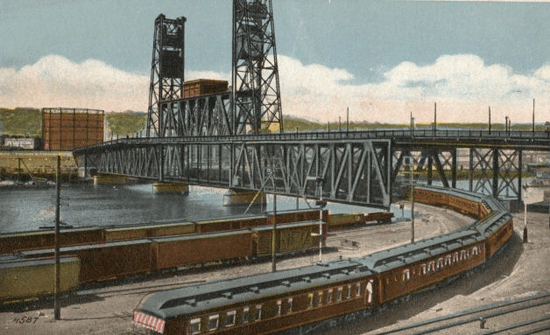Since forming in 1996, Martyn Leaper and the Minders have morphed from Elephant 6 darlings to twee-pop anarchists, throwing love bombs and denouncing nothing. Most non-fans remember the Minders’ auspicious 1998 debut, Hooray For Tuesday, and its unfairly derided follow-up, 2001’s Golden Street, but the band was active until 2006’s slight-but-lovely It’s A Bright Guilty World. The Minders’ only interim release has been the second web-only iteration of their odds-and-sods Cul-De-Sacs And Dead Ends. In the gap, Leaper wrote and demoed new songs when he could crowbar it into his 40-hour work week. Along with renowned producer Larry Crane (Elliott Smith, Sleater-Kinney), Leaper began finding the thread of Into The River, the first actual Minders studio work in a decade. Leaper will be guest editing magnetmagazine.com all week. Read our Minders feature.

Leaper: I have lived in Portland, Ore., for more than 18 years, almost long enough to consider myself a Portlander. When I first visited Portland in the early 1990s, I was struck by the unique geographic setting of the city as a port. Most inland ports are situated mere miles from the sea. Portland is slightly more than 80 miles from the Pacific Ocean, which makes it a rare city port. Portland’s near two centuries of history has seen the city evolve from a hard-nosed river port to a progressive modern metropolis. The city’s days as the most notorious sea port on America’s West Coast are chronicled and captured vividly by Barney Blalock’s Portland’s Waterfront. Blalock, a former longshoreman, has lovingly captured the colorful bygone days of Bridgetown when it played host to tall ships from across the globe and was home to some of the most ruthless criminals of the American West. Stevedores, longshoremen and shanghai masters used to fill the streets and wharves of old Portland. Today, the city’s maritime past is almost forgotten, except for the occasional large grain ship or pilot boat that can be seen slowly ambling down the Willamette. I’m so glad I found Blalock’s history books, I love reading history especially when it is about somewhere that I am living. Blalock has written several other books about the history of Portland—his work has inspired me to do research of my own.






